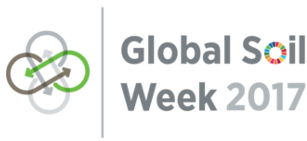“Europe and the Post 2015 Development Agenda: Shaping effective follow up, review and accountability mechanisms”
International Multi-stakeholder Dialogue, 29-30 June 2015
Organised by the Institute for Advanced Sustainability Studies
Renewable Resources and the Sustainable Development Goals Forum
Co-hosted by
Red Española para el Desarrollo Sostenible – REDS Spain
Sustainable Development Solutions Network Germany
Please download the Chair's Conclusion.
The year 2015 will be a milestone for sustainability. In September 2015 United Nations Member States are expected to agree on global Sustainable Development Goals (SDGs), which will be universally applicable and will incorporate the three dimensions of sustainable development.

© Rex Turgano
This Dialogue brings together more than 50 international stakeholders from national governments, the European Union, business, civil society and science. It aims to discuss Europe’s role in shaping effective follow up, review and accountability mechanisms for a successful implementation of the Sustainable Development Goals (SDG). The discussion focuses on the sustainable production and consumption of biomass in and by Europe. Biomass understood as biological material produced on land for human food, animal feed, material, and energy use will be central for the achievement of several of the SDGs. However, the current set of SDGs does not reflect these challenges in an integrated way, i.e. it does not address the competition between different uses of biomass that are implied by the different goals. Along those lines, European member states must find ways to avert the risks inherent in the current set of biomass related SDGs both, within their respective jurisdictions, as well as with respect to other European member states and beyond.
The globally negotiated goals shall be reached at different levels of governance; the national, the regional and the international level. From September 2015 onwards, European member states will decide how to implement the SDGs. A key question is which follow up, review and accountability mechanisms are in place or will be required to make the implementation of the SDGs effective. Furthermore, there is the opportunity to explore how national level mechanisms could be strengthened through the European level. The European Union as well as most EU Member States already have sustainability strategies and associated governance mechanisms in place. Yet, there is an on-going debate whether the national sustainable development strategies are “fit for purpose” in the context of the SDGs.
Key questions: The multi-stakeholder dialogue on Europe and the Post 2015 Development Agenda: shaping effective follow up, review and accountability mechanisms aims to address the following key questions.
- What is the role of Europe for the follow up, review and accountability of the SDGs?
- Which follow up, review and accountability mechanisms currently exist and will be required to ensure an effective implementation of the SDGs in and by Europe?
- How can national implementation and review be strengthened through the European level?
About the IASS: Founded in 2009, and headed by Professor Klaus Töpfer, the Institute for Advanced Sustainability Studies (IASS) is an international, interdisciplinary hybrid between a research institute and a think tank, located in Potsdam, Germany. The publicly funded institute promotes research and dialogue between science, politics and society on developing pathways to global sustainability. The IASS Renewable Resources and the Sustainable Development Goals Forum, which hosts the International Multi-Stakeholder Dialogue, provides a research and exchange platform on sustainable biomass to meet basic human needs.
For further information, please click here. Please download the agenda here.


